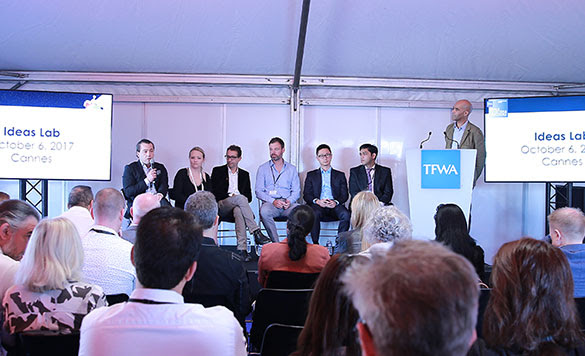


Jibo went on to cite the Boston Consulting Group, which has stated that the time is ripe to invest in digital technologies and services that improve the passenger experience beyond mobile boarding passes and text message alerts. Travellers, Jibo continued, want frictionless, on-demand functionality and expect seamless connectivity at every touch-point.
Big data is the future for more efficient airport operations and ancillary revenue growth. Airlines, airport operators and travel retail brands need to work more collaboratively, and IT investment is critical to meet the needs and demands for digital transformation.
Personalisation is not only the holy grail, it will be the next revolution for the travel industry. Mining sophisticated data to meet customer demands about an individual traveller’s behaviour pre, during and post the trip is vital.
Travel retail is, he continued, at the forefront of the omnichannel revolution, and increasingly, passengers want any travel retail shopping to be a mix of online integrated with the offline experience.
The industry needs to make the airport a destination of retail choice, where experiential pop-ups and entertainment are a constantly changing dynamic. It needs to craft experiences that cross channels, beginning as digital research and ending at a physical airport. A mobile-first mindset is essential and the business must include more phygital (physical-digital) marketing strategy.
Jibo concluded that the industry also needs to harness big data and analytics to target captive audiences through omnichannel and digital strategies in store, as well as being mindful of its greater strengths of customer service, hospitality and creating memorable experiences.
Cenk Akerson, co-founder and CEO of social experience shopping app Dutybuddy, was the first speaker in a compelling session of presentations from exhibitors at TFWA Digital Village. He outlined how his company’s approach was to replace the negative disruption of companies such as Uber and Facebook with a more positive disruption that didn’t destroy what had preceded it.
Hayley Kenney of experiential design company Holovis spoke of her company’s aspirations to extend experiences, and create lifelong connections with brands and products. She said that data was “the currency of the future”.
Julien Sivan, MD of e-commerce site SKYdeals, said that his was the first inflight ‘shoppertainer’, providing engaging customer experiences such as self-delivering trollies.
In his presentation, Nick Redmond, group account director of brand experience agency Ignis, spoke of how brands are no longer defined by the relevance of a product, but the experience it provides. He highlighted the importance of making meaningful connections, as well as connecting at all points of what he called “the travel trail”.
Next on stage was Xin Deng, MD of digital marketing agency Global Smiling. He stated that the core philosophy of his business was to create, convince, convert and connect, both before, during and after travel.
Kshitij Goyal, founder of retail platform DutyFreeList, spoke of his company’s report into airport, airline and social media engagement.
Concluding the event, TFWA’s John Rimmer said that the purpose of the TFWA Digital Village was to encourage a more collaborative approach between industry stakeholders in order to seize the opportunities that digital technology offers. He thanked exhibitors and visitors to the Digital Village for their investment in the event and encouraged them to contact TFWA with their feedback.



